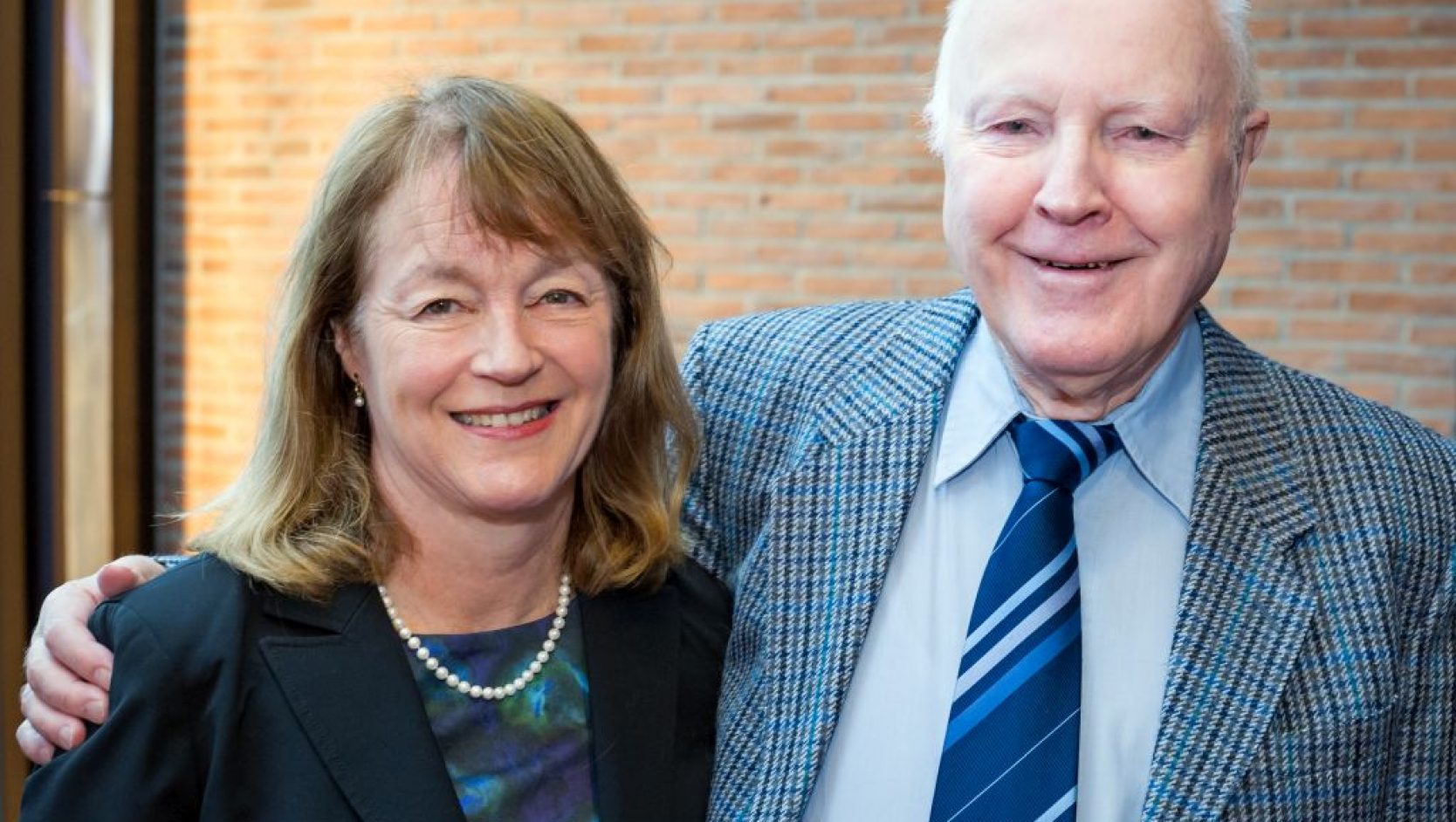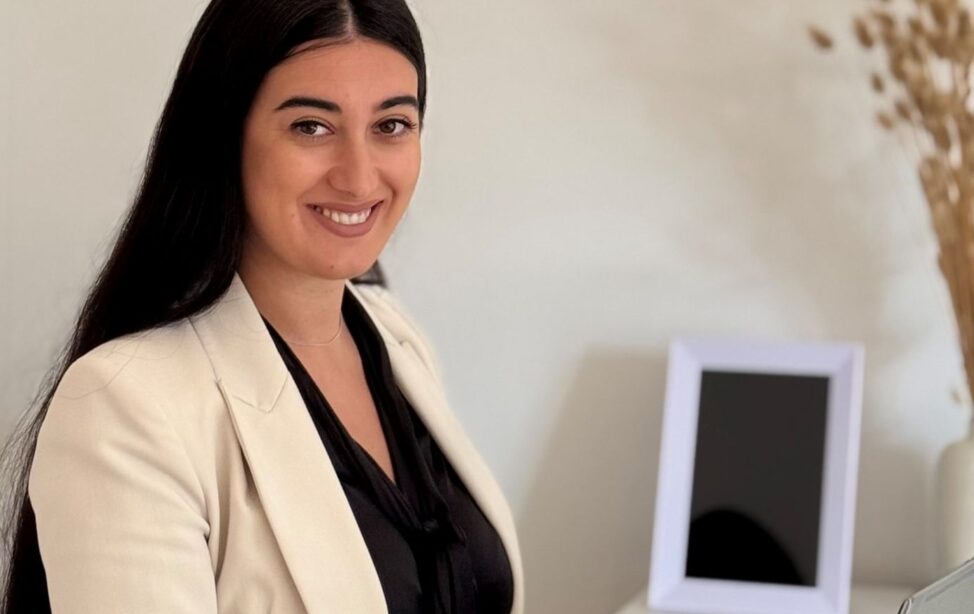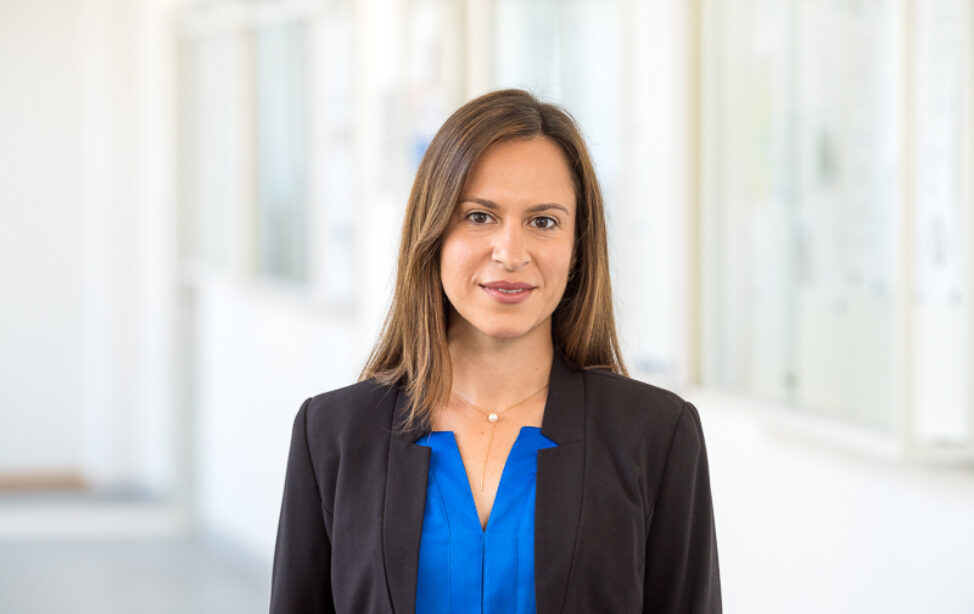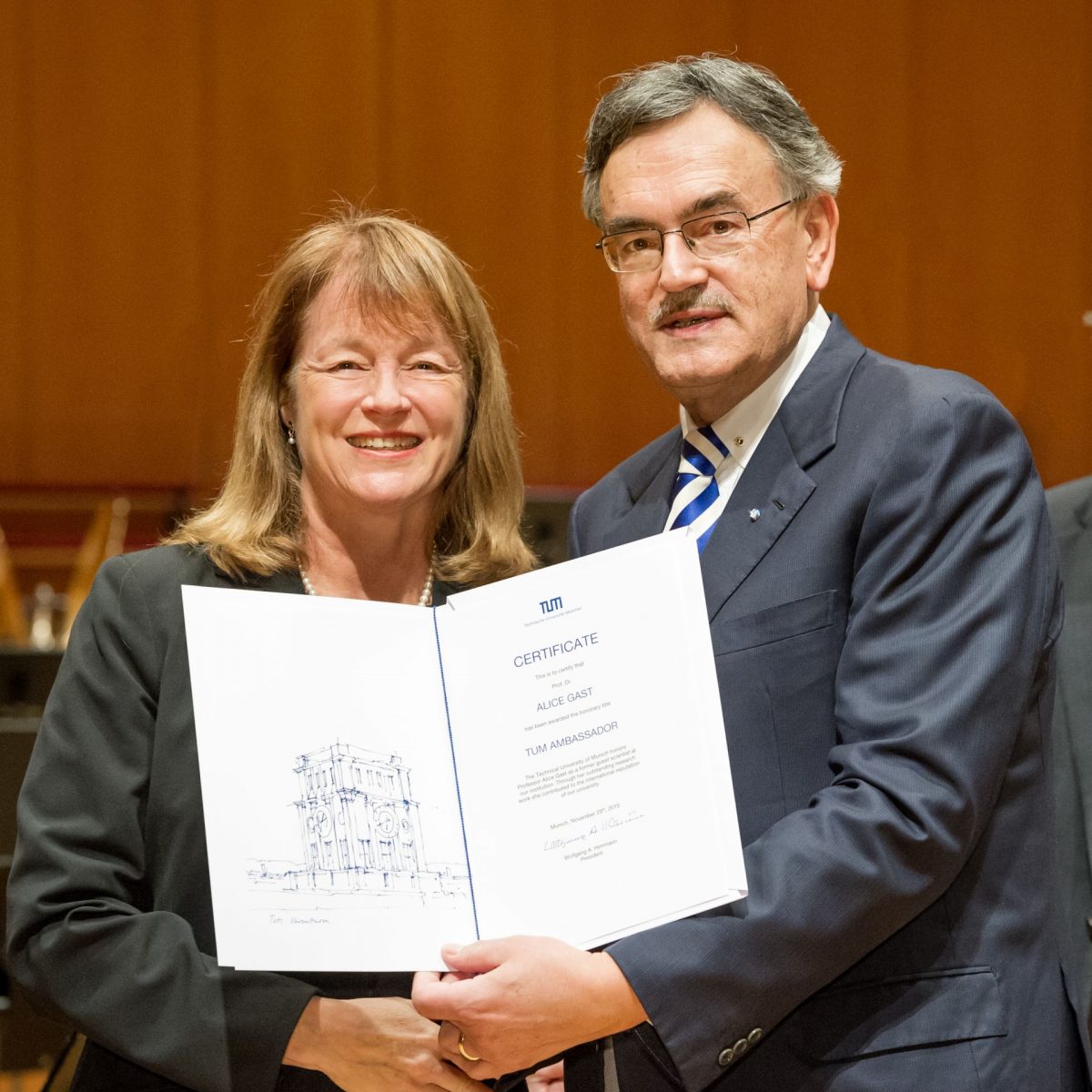
In December 2015, Alice Gast was awarded the honorary title of TUM Ambassador by TUM President Wolfgang A. Herrmann (Photo: Astrid Eckert/TUM).
INTERNATIONAL PROJECTS
The US-born Alice Gast speaks from her own experience. As a young researcher, she had a great time as a postdoc student working with French colleagues at NATO in Paris. Later, she conducted research with colleagues from Mexico and Germany. In the end, the greatest difficulties turned out to be of the greatest benefit. The respective approaches seemed incompatible with one another at the beginning. Later it turned out that it was precisely this clash of opinions that led the German-American-Mexican team to success, as Alice Gast mentions in an article she wrote for Scientific American. “Since we all grow up in different cultures, I think that international collaborations are very beneficial because we look at and tackle problems differently”, she says.
The way we tackled problems was different and that was precisely the benefit.
RESEARCH PERIOD AT TUM
An award from the Alexander von Humboldt Foundation brought Alice Gast to Germany in 1999, and to TUM, where she worked in the research group of experimental physicist Erich Sackmann, one of Europe’s most important and influential biophysicists. Alice Gast has benefited in multiple ways from her time at TUM. “At the scientific level, I was able to develop from a more physical-chemical background further towards biophysics. It was a very important period in my career and my students and I enjoyed the hospitality of Professor Erich Sackmann and his students.“ She brought her family with her to Munich back then and so they were also able to gain impressions and experiences of Bavaria: “Our children have been passionate travelers since they were born and they very much enjoyed Germany and German food and culture.“
STRATEGIC PARTNERSHIP
Since October 2018, TUM and Imperial College London have also been strategic partners in research, teaching and technology transfer. This partnership was of course initiated by Alice Gast and Wolfgang A. Herrmann, who are both convinced that, by partnering, two of Europe’s leading technical universities will be able to expand their complementary strengths in high technologies such as Artificial Intelligence, Robotics, Digital Medicine, Bioengineering, and Aerospace Science. “TUM and Imperial are made for each other in terms of their completely identical research portfolios,” said President Wolfgang A. Herrmann on the occasion of the signing. And Alice Gast added that “Imperial College is a global university, and we are delighted to strengthen our international ties with TUM as a great partner”.
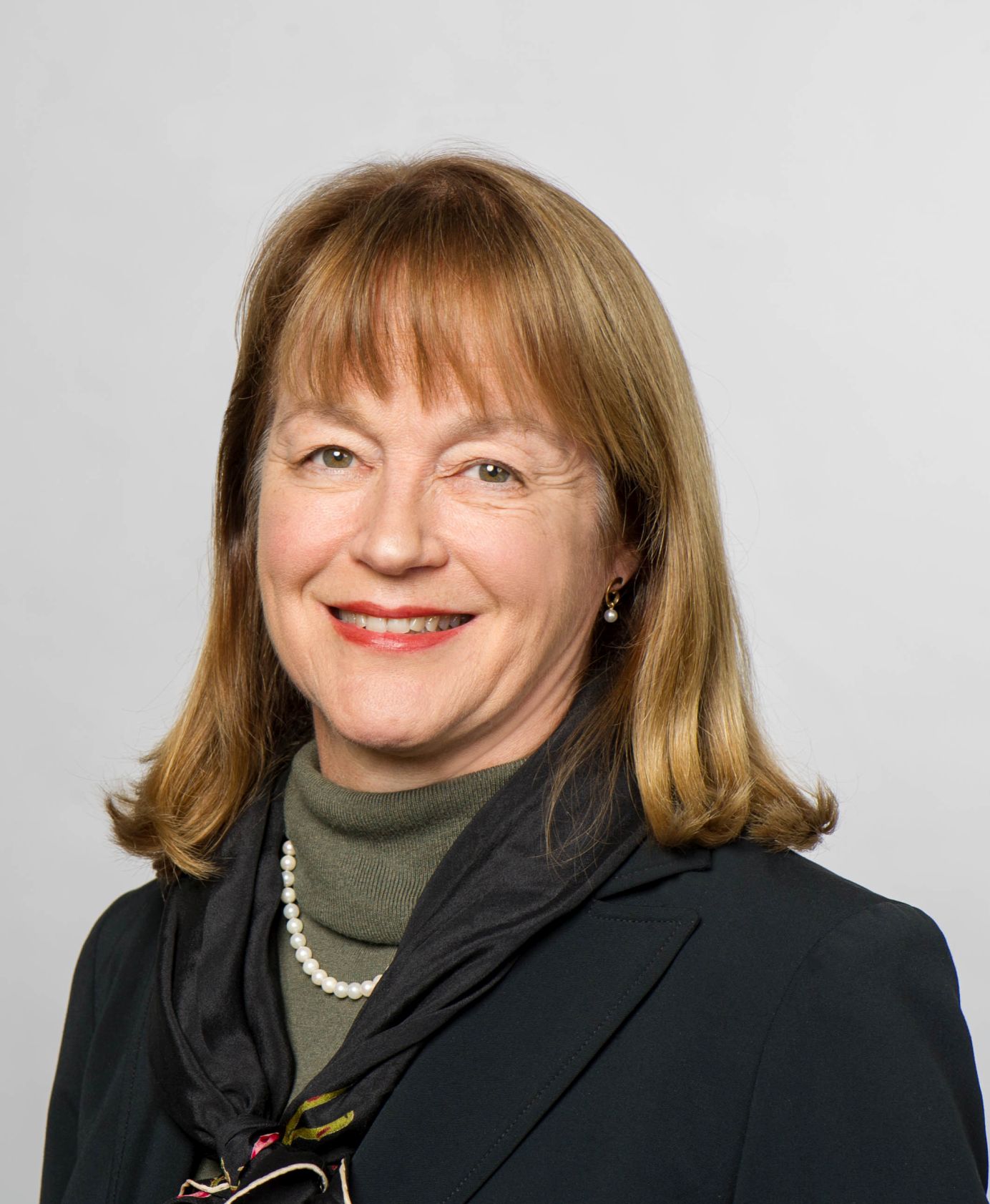
Prof. Dr. Alice Gast (Photo: Astrid Eckert/TUM)
Prof. Dr. Alice Gast
TUM Ambassador 2015
Alice Gast is a chemical engineer who has served as President of Imperial College London since 2014. The internationally respected scientist was born in Texas and gained her PhD at Princeton University. After receiving a NATO scholarship, she spent a year as a postdoc at the École Supérieure de Physique et de Chimie Industrielles in Paris. From 1985 to 2001, she taught at Stanford University, after that moving to the Massachusetts Institute of Technology as Vice-President of Research.
In 2006 she became President of Lehigh University in Pennsylvania. As a scientific envoy of the US government, she advised the White House on the basis of the knowledge she had gained as part of her travels, among other things, to Central Asia and the Caucasus Region.
An award from the Alexander von Humboldt Foundation brought her to Germany in 1999, and to TUM, where she worked in the research group of experimental physicist Erich Sackmann. 2015 saw her awarded the honorary title “TUM Ambassador” by TUM President Wolfgang A. Herrmann.
Find the short profiles of all TUM Ambassadors since 2012 here
